Antivirus software is an essential tool for small businesses to protect their computers and networks from malware, viruses, and other cyber threats. With so many antivirus solutions available, choosing the right one for your business can be a daunting task.
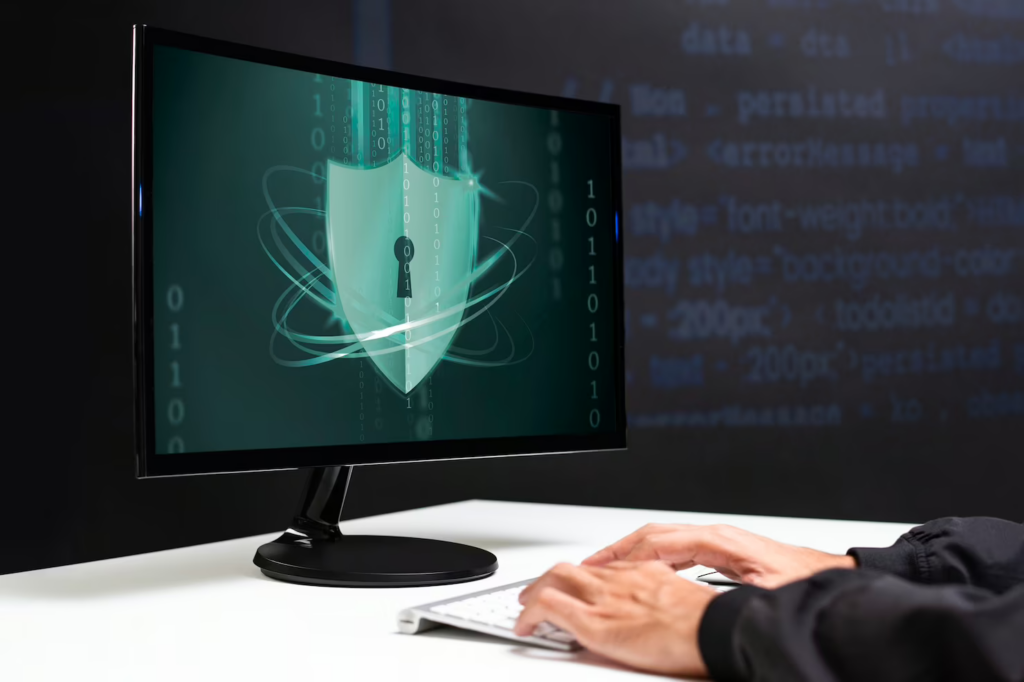
Image by rawpixel.com on Freepik
BENEFITS
Antivirus software can be incredibly beneficial to your company in several ways:
- Protects against malware and viruses: Antivirus software is designed to protect your company’s computers and network from malware, viruses, and other cyber threats. This protection can prevent your computers from being infected with malicious software that can cause significant damage to your business, such as stealing sensitive data or causing system crashes.
- Improves productivity: When your computers are infected with malware or viruses, they can slow down or even stop working altogether. Antivirus software can help prevent these issues, ensuring that your employees can work efficiently and productively.
- Prevents data breaches: Cyberattacks can lead to data breaches, which can be incredibly damaging to your company’s reputation and finances. Antivirus software can help prevent these breaches by identifying and blocking potential threats before they can infiltrate your system.
- Saves money: Recovering from a cyberattack can be incredibly costly for small businesses, both in terms of lost revenue and the cost of repairing the damage done to your computers and network. Investing in antivirus software can help prevent these issues, saving your company money in the long run.
- Provides peace of mind: Knowing that your company’s computers and network are protected by antivirus software can give you peace of mind, allowing you to focus on running your business instead of worrying about potential cyber threats.
Overall, antivirus software is an essential tool for small businesses that want to protect themselves against cyber threats. It can help improve productivity, prevent data breaches, save money, and provide peace of mind to business owners and employees alike.
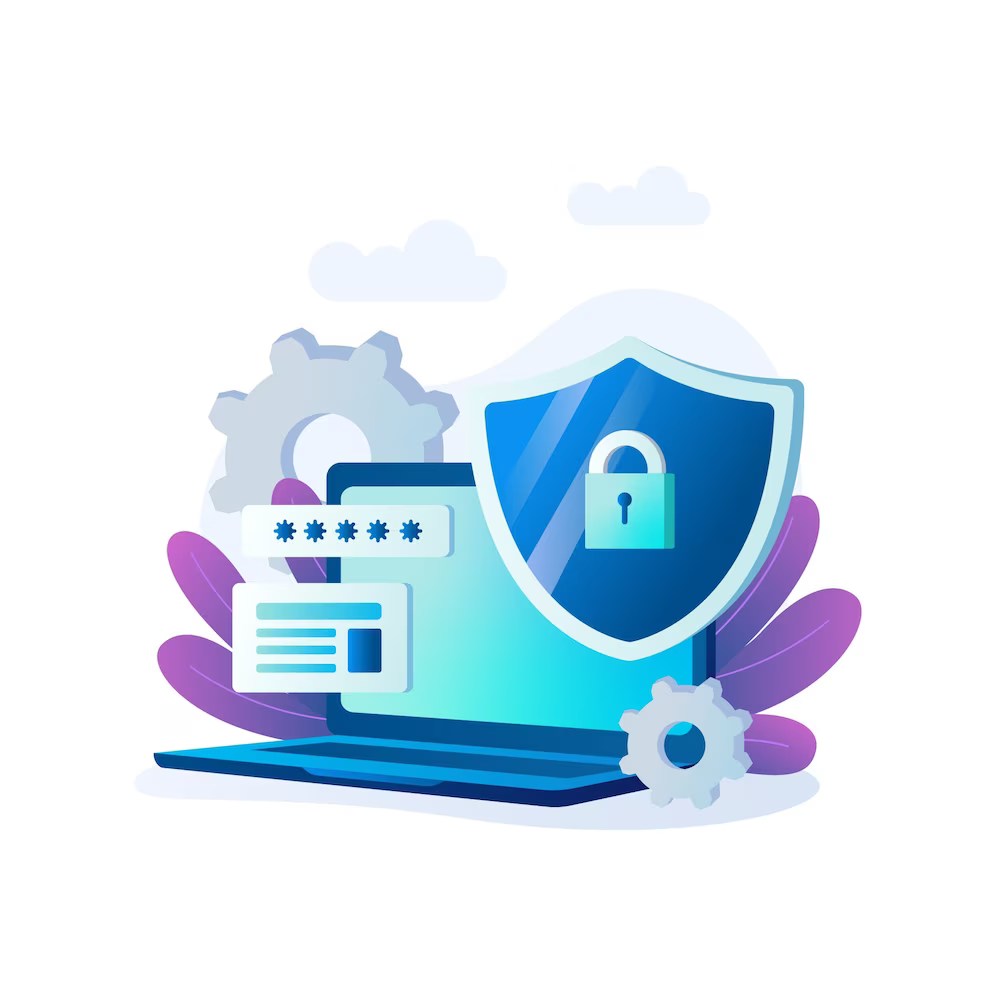
Image by Freepik
NOT HAVING IT IS A BAD IDEA
If you do not have antivirus software installed on the computers in your company, several negative consequences could occur:
- Increased risk of malware infections: Without antivirus protection, your computers are vulnerable to malware infections, which can cause significant damage to your business. Malware can steal sensitive data, damage your files, and even take control of your computers.
- Reduced productivity: If your computers are infected with malware, they may slow down or stop working altogether, reducing your employees’ productivity and causing delays in your business operations.
- Data breaches: Cyberattacks can lead to data breaches, which can be incredibly damaging to your company’s reputation and finances. Without antivirus protection, your computers are more vulnerable to these attacks, making it easier for cybercriminals to access your sensitive data.
- Financial loss: Recovering from a cyberattack can be costly, both in terms of lost revenue and the cost of repairing the damage done to your computers and network. Without antivirus protection, you’re more likely to experience a cyberattack, which could result in significant financial losses for your company.
- Legal issues: If your company handles sensitive customer data, you may be required by law to protect that data from cyber threats. If your computers are infected with malware and sensitive data is stolen, your company could face legal consequences.
So not having antivirus software installed on the computers in your company can leave your business vulnerable to malware infections, reduced productivity, data breaches, financial loss, and legal issues. It’s essential to invest in antivirus protection to ensure the security and safety of your company’s computers and network.
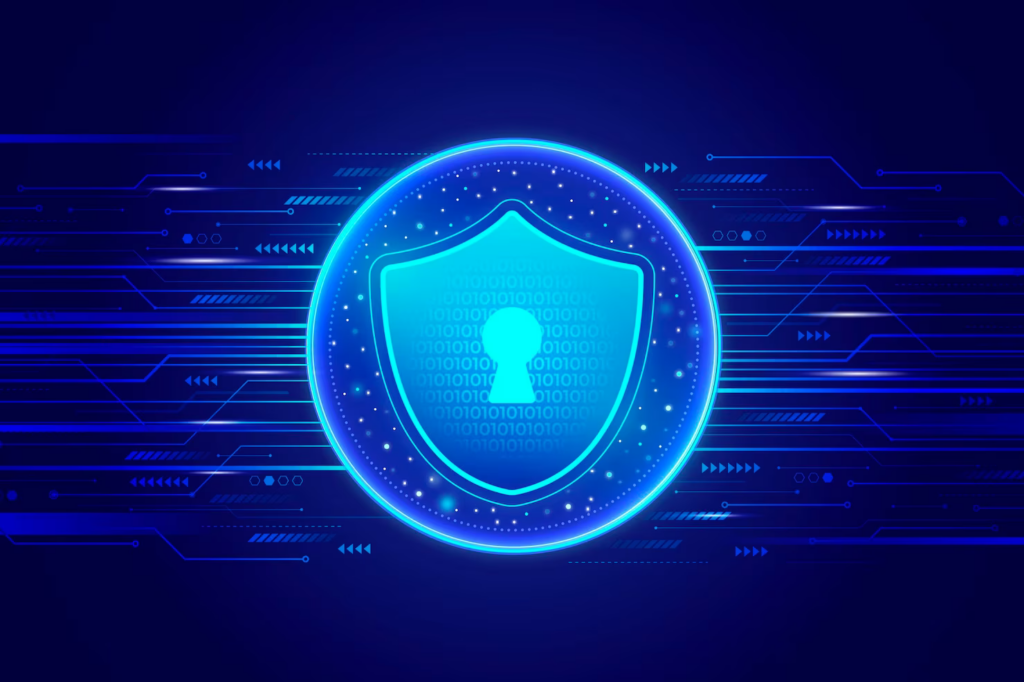
Image by Freepik
HOW TO MAKE THE RIGHT CHOICE
Here are some things to consider when selecting an antivirus program:
- Security features: The most important factor to consider when selecting an antivirus program is its security features. Look for software that includes features like real-time scanning, malware removal, and firewall protection.
- Compatibility: Make sure the antivirus software you choose is compatible with the version of Windows you’re running. Some antivirus programs may not work with older versions of Windows, so be sure to check the system requirements before making a purchase.
- Ease of use: The software should be user-friendly and easy to navigate. Small business owners may not have a dedicated IT department, so ease of use is an important factor.
- Customer support: Choose a company that offers good customer support in case you run into issues with the software. Look for companies that offer support through multiple channels, including email, phone, and chat.
- Price: Price is always a consideration, but don’t let it be the sole deciding factor. Some antivirus programs are more expensive than others, but they may offer better security features and customer support.
With those factors in mind, here are some antivirus solutions for Windows that are suitable for small businesses:
- Norton Antivirus: Norton Antivirus is a well-known antivirus software that offers excellent security features, including real-time scanning, malware removal, and firewall protection. It’s also very user-friendly and has good customer support. Norton Antivirus offers a variety of plans, including a basic plan for a single PC and a more advanced plan for multiple PCs.
- McAfee Antivirus: McAfee Antivirus is another popular antivirus solution for Windows. It includes features like real-time scanning, malware removal, and firewall protection. McAfee Antivirus also has good customer support and is very user-friendly. Pricing for McAfee Antivirus varies depending on the plan you choose.
- Kaspersky Antivirus: Kaspersky Antivirus is a well-known antivirus solution that offers excellent security features like real-time scanning, malware removal, and firewall protection. It’s also very user-friendly and has good customer support. Kaspersky Antivirus offers a variety of plans, including a basic plan for a single PC and a more advanced plan for multiple PCs.
- Bitdefender Antivirus: Bitdefender Antivirus is another popular antivirus solution for Windows. It includes features like real-time scanning, malware removal, and firewall protection. Bitdefender Antivirus is very user-friendly and has good customer support. Pricing for Bitdefender Antivirus varies depending on the plan you choose.
When choosing an antivirus software for your small business, it’s important to do your research and choose a solution that fits your needs and budget. Remember to prioritize security features, compatibility, ease of use, customer support, and price when making your decision.
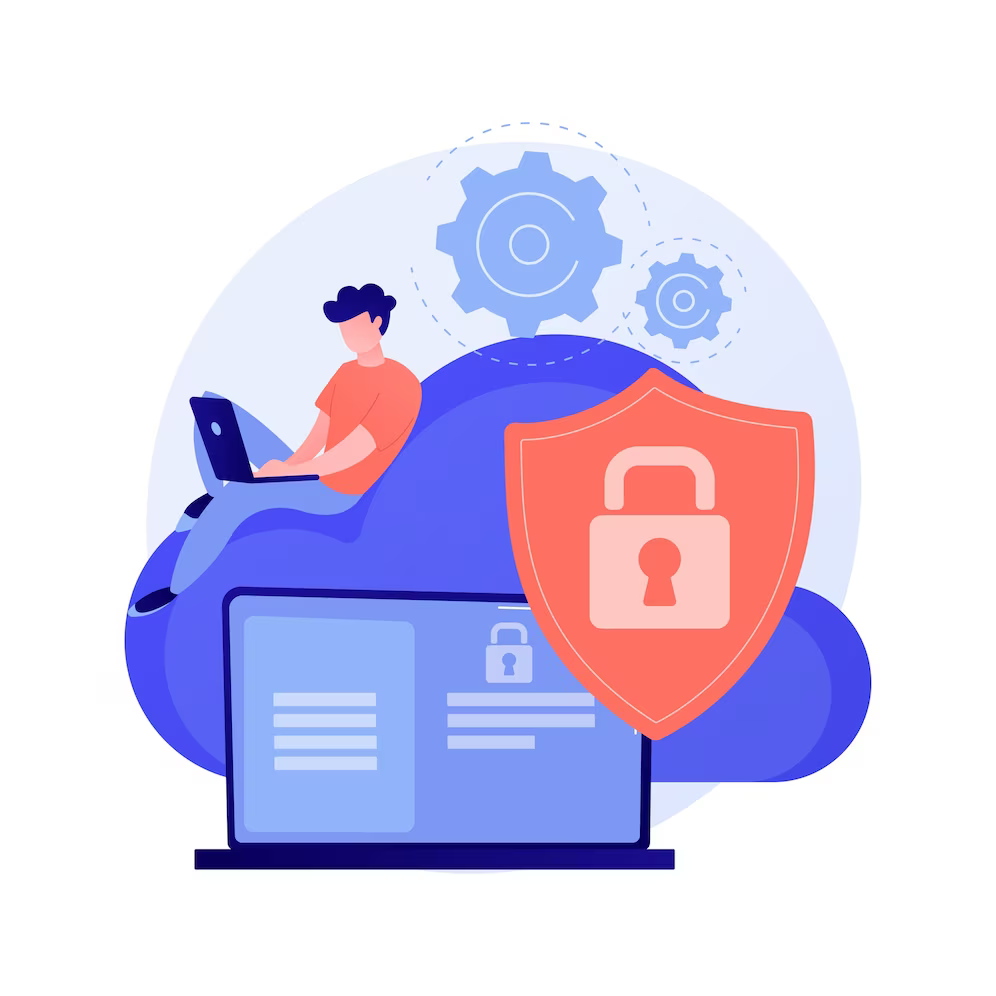
Image by vectorjuice on Freepik
AND WHAT ABOUT THE SERVERS?
Antivirus protection for servers is just as important as antivirus protection for individual computers. Servers are often the backbone of a company’s IT infrastructure and hold important data and information. If a server is compromised by malware, it can lead to serious consequences for the company, including data loss, data breaches, and significant downtime.
Here are some reasons why antivirus protection is essential for servers:
- Protection against malware: Servers are vulnerable to the same types of malware and viruses as individual computers. Antivirus protection for servers can help detect and prevent malware from infecting the server, ensuring that critical data and information remain secure.
- Improved server performance: Malware infections on a server can slow down performance and reduce productivity. Antivirus protection can help keep servers running smoothly by preventing malware from disrupting normal operations.
- Compliance requirements: Many industries, such as healthcare and finance, are required by law to protect sensitive data. Antivirus protection for servers can help meet these compliance requirements, ensuring that sensitive data remains protected.
- Early threat detection: Antivirus protection for servers can provide early detection of potential threats and vulnerabilities, allowing IT professionals to take action before a serious incident occurs.
- Prevent data loss: Servers often store important data and information. Without antivirus protection, malware infections can lead to data loss, which can be disastrous for a company. Antivirus protection can help prevent data loss by detecting and removing malware before it can cause damage.
In conclusion, antivirus protection for servers is essential for any company that wants to protect critical data and information, ensure compliance, and prevent downtime. By investing in antivirus protection for servers, companies can improve server performance, detect potential threats early, and prevent data loss.
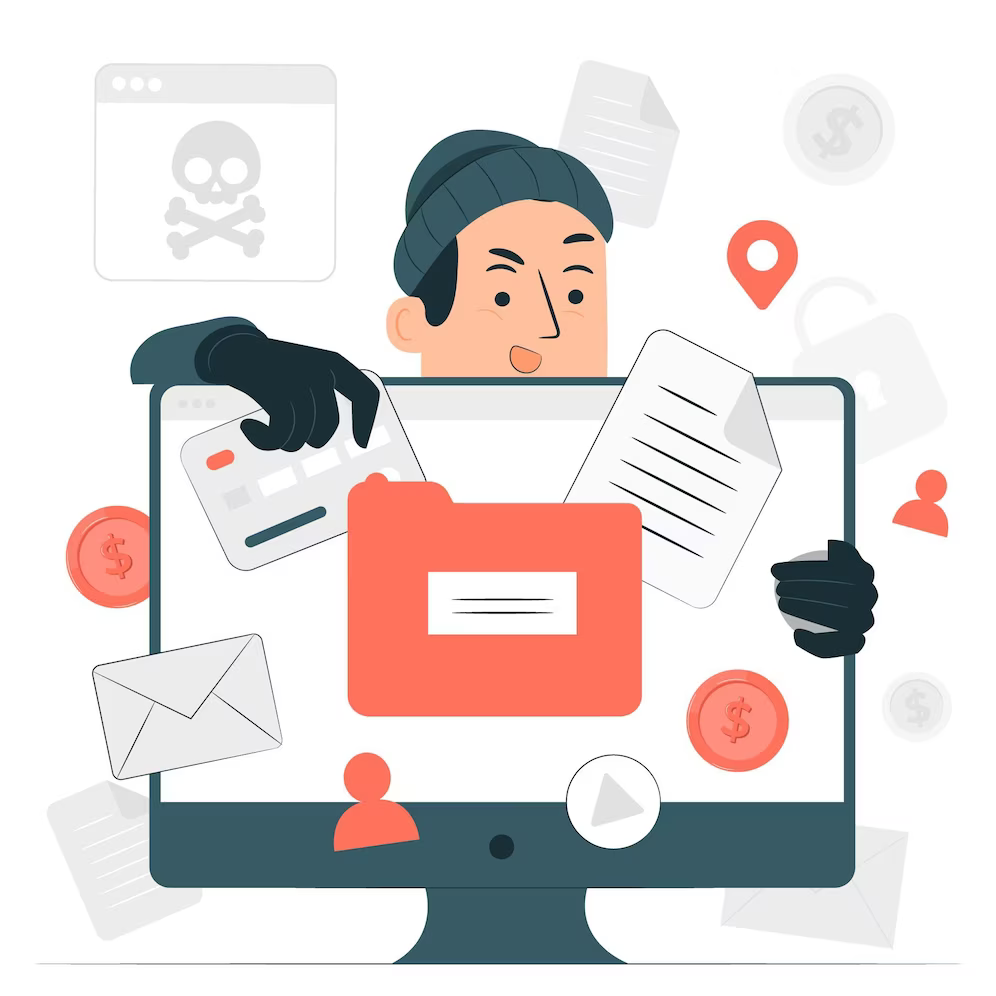
Image by storyset on Freepik
Antivirus software for servers and individual computers have some key differences due to their different roles and responsibilities in a company’s IT infrastructure. Here are some of the main differences:
- Scalability: Antivirus software for servers is designed to handle large-scale deployments and is typically more scalable than antivirus software for individual computers. Servers often need to support many more users and more significant amounts of data than individual computers, so the antivirus software needs to be able to handle the increased workload.
- Centralized management: Antivirus software for servers is typically designed to be centrally managed, allowing IT professionals to manage and monitor virus scans and updates across all servers in the network from a single console. Antivirus software for individual computers may not have this level of centralized management, which can make it more difficult to manage a large number of devices.
- Real-time protection: Antivirus software for servers often includes real-time protection, which constantly monitors the server for any potential threats and blocks them before they can do any damage. This is particularly important for servers because they are often the target of more sophisticated attacks than individual computers.
- System impact: Antivirus software for servers is designed to have minimal impact on server performance since servers are typically used for critical business operations that require high levels of performance and uptime. Antivirus software for individual computers may have a more significant impact on performance, as individual users may not require the same level of performance as servers.
- Features: Antivirus software for servers may include additional features that are not available in antivirus software for individual computers, such as network intrusion detection and prevention, advanced threat analytics, and vulnerability assessments. These features help provide additional layers of protection for servers and are not typically needed on individual computers.
In summary, antivirus software for servers and individual computers have some key differences due to the different roles and responsibilities they play in a company’s IT infrastructure. Antivirus software for servers is typically more scalable, includes centralized management, provides real-time protection, has minimal impact on performance, and may include additional features not found in antivirus software for individual computers.
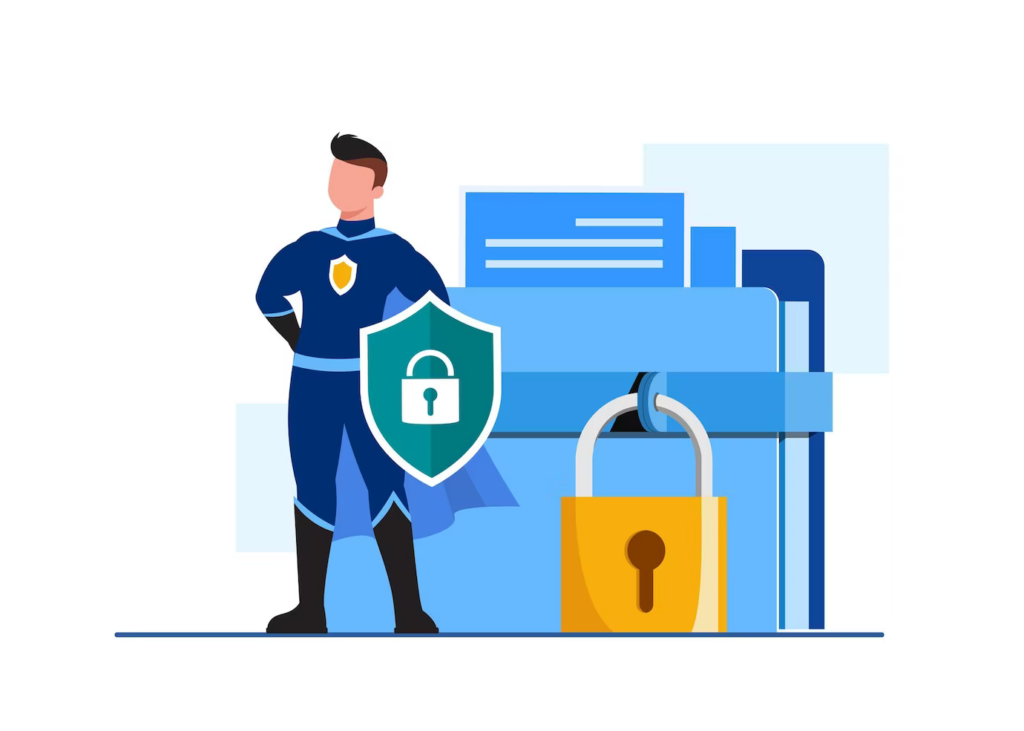
Image by jcomp on Freepik
Some of our contents have been created by ChatGPT, a large language model trained by OpenAI, based on the GPT-3.5 architecture, with the knowledge cutoff date of 2021-09
